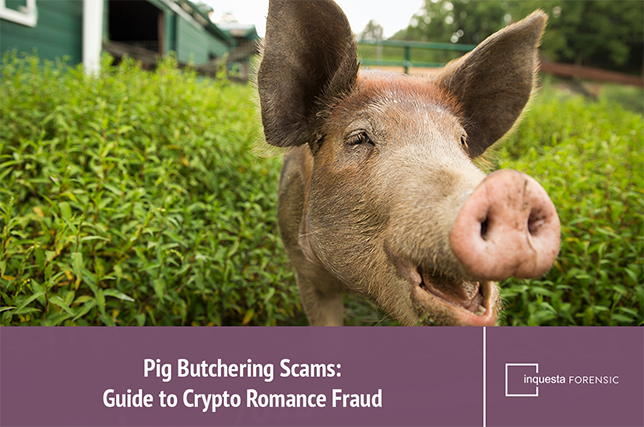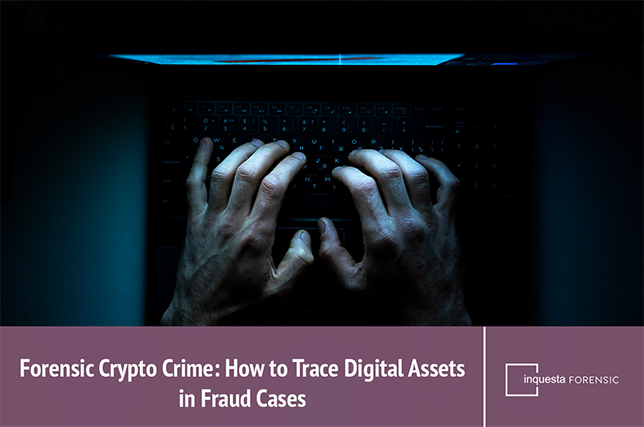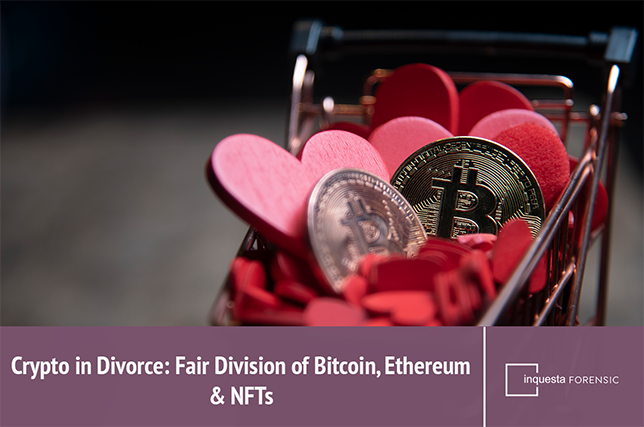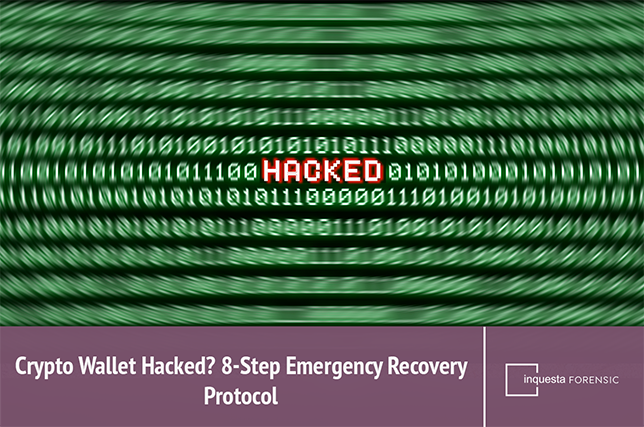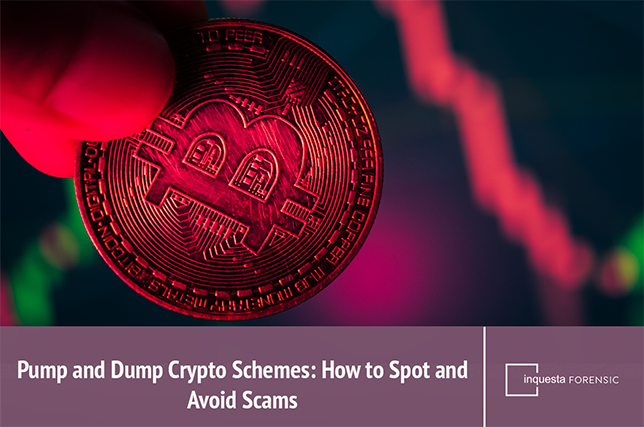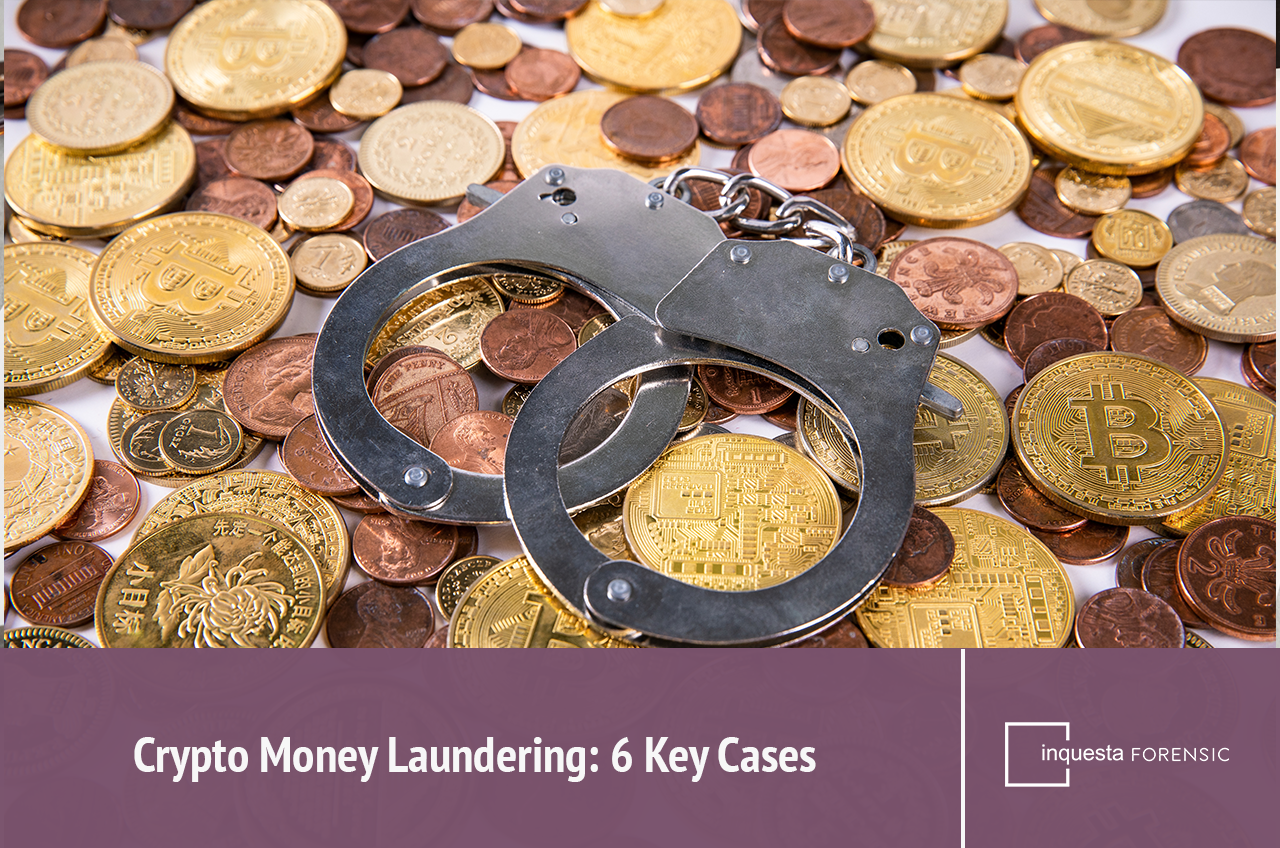In recent years, cryptocurrency has revolutionised the way we think about money and transactions. Whether it’s trading the markets or using digital coins for everyday purchases, the world of crypto has rapidly woven itself into the fabric of our society, with a huge number of legitimate transactions taking place every single day. However, while these digital assets offer a plethora of exciting opportunities, their largely unregulated nature has also opened the door to misuse — with crypto assets increasingly becoming a common tool for money laundering and other criminal activities.
The legal landscape in the UK and around the world has been slow to keep pace with crypto crime, since the tokens cannot be recovered as efficiently as assets held in more traditional institutions such as banks. Enter the Proceeds of Crime Act (POCA), a legal tool designed to tackle financial wrongdoing. Its civil recovery powers can freeze or even confiscate assets deemed to be the result of criminal activity.
But how exactly does the POCA help tackle crypto crime, and what are the limitations of its powers? Read on to find out more.
POCA Confiscation & Crypto Crime: How it Works
Section 74 of the POCA classifies cryptocurrency as “property”, which means that it can be lawfully seized, confiscated, or forfeited under Section 84 of the same Act. Two of the most common methods of doing so are Restraint Orders and Confiscation Orders, which operate as follows:
Restraint Orders
Restraint Orders freeze assets whenever a criminal investigation gets underway, preventing them from being moved or sold off. The aim is to ring-fence the affected items in case they need to be confiscated further down the line.
A Restraint Order works by prohibiting people from dealing with anything classified as “realisable property”. This is defined under the POCA as any “free property held” by a defendant or the recipient of a “tainted gift”. If a court wants to exercise these powers, one of five key conditions must be met. The two most common ones are:
- A criminal investigation has started and law enforcement believe the defendant has benefited from the alleged illicit activity
- Criminal proceedings have begun and it is suspected that the individual has benefited from their illegal conduct
If you’re unsure about whether your cryptocurrency assets satisfy one of these five conditions, it’s essential to seek specialist guidance as soon as possible.
Confiscation Orders
Confiscation Orders, meanwhile, require a convicted defendant to pay back any money they have gained as a result of their criminal activity. Enacted by the Courts, these Orders seize assets such as cryptocurrency for the purpose of repaying victims of fraud, or to add to the public purse.
The main difficulties faced by law enforcement when dealing with crypto crimes and POCA is tracing the movement of digital assets and determining their true value. The lack of a centralised exchange and the fluctuating nature of prices will make it extremely complicated to track the flow of cryptocurrencies in order to ascertain how much each token is worth.
POCA Updates Relating to Crypto Crime
To bolster the POCA’s effectiveness when tackling the digital proceeds of crypto crimes and other illegal activity, several amendments have been made to the Act as part of the Economic Crime and Corporate Transparency Act 2023, which was enacted in October of that year. These changes were designed to enhance existing confiscation and recovery powers.
The main amendments involving cryptoassets include:
- Introducing a Freezing Order for certain crypto wallets
- Enabling the seizure of digital assets before an arrest has been made
- Permitting law enforcement agencies to recover cryptoassets directly from exchanges or custodian wallet providers
- Authorising frozen or detained virtual assets to be returned to victims or converted into cash
These changes represent a new focus on tackling criminal activity relating to cryptocurrencies, as the UK grapples to be a leading name in digital technologies.
Limitations of the POCA with Crypto Crimes
Currently, the amendments to the POCA only relate to “UK-connected” proceeds of crypto crime and other illegal activities. This effectively limits the scope of the Act, given the popularity of overseas-based service providers.
According to the POCA, “UK-connected” assets include those held in businesses that:
- Operate within the UK
- Have their registered office or manage their day-to-day affairs in the UK
- Require customer disputes to be held in the UK
- Hold customer data in the UK
The ease and speed with which cryptocurrency can be transferred make the seizure of assets extremely difficult, especially when it is converted into FIAT currency (a type of currency not backed by a precious metal such as gold or silver).
Although cryptocurrency itself doesn’t have a jurisdiction, POCA gives The Crown the right to enforce a payment equivalent to the value of assets, even if they are outside the jurisdiction.
Practical Applications of the Rules
Now that an arrest is no longer required to seize cryptocurrency, law enforcement officials must only need “reasonable grounds for suspicion” that the asset is recoverable under the POCA. Detention of any items seized can be authorised at a magistrates’ court for a period of between six months and three years.
Victims of crypto crime, or those whose stolen assets were converted into cryptocurrency, can also now use the POCA and apply to the magistrates’ court for the digital tokens to be returned to them. Alternatively, the crypto assets can be sold and the proceeds used to compensate victims.
Additionally, “UK-connected” businesses that operate within the cryptocurrency market will need to ensure they’re well-placed to cope with their new obligations and effectively freeze or confiscate digital assets.
Specialist Support with Crypto Crimes and POCA
If you’re looking for expert guidance relating to cryptocurrency crime and the POCA, the team at Inquesta Forensic are the people you need to call. We have extensive experience in dealing with all aspects of financial fraud, including criminal defence and Confiscation Orders.
Rob Miller, the director of Inquesta Forensic, is a Certified Cryptocurrency Investigator. This certification enhances our ability to trace and analyse complex cryptocurrency transactions, providing a significant advantage when dealing with any crypto crimes and POCA cases.
From the outset, we’ll work with you to understand your circumstances and goals, before developing a bespoke solution designed to deliver your desired results. We’re adept at handling even the most complex of transactions, including those with an international aspect. As a result, you can be completely confident in our level of expertise.
We’ll support you throughout the entire process, from initial forensic investigation right through to acting as an expert witness in court where necessary. Our team leaves no stone unturned in the pursuit of a high-quality and reliable service, with our involvement often proving crucial to achieving a successful resolution for our clients. Your success is our success.
For more information about how Inquesta Forensic can help you, get in touch today.
- Your Partner’s Been Convicted: Can They Take Your House? What Section 10a POCA Means For You
- The Essential Role of Forensic Accounting in High Net Worth Divorce
- How to Value a Startup Business: A Guide for UK Entrepreneurs
- Pig Butchering Scams: Guide to Crypto Romance Fraud
- Shareholders’ Disputes: How Business Valuation Helps with Shareholder Dispute Resolution



